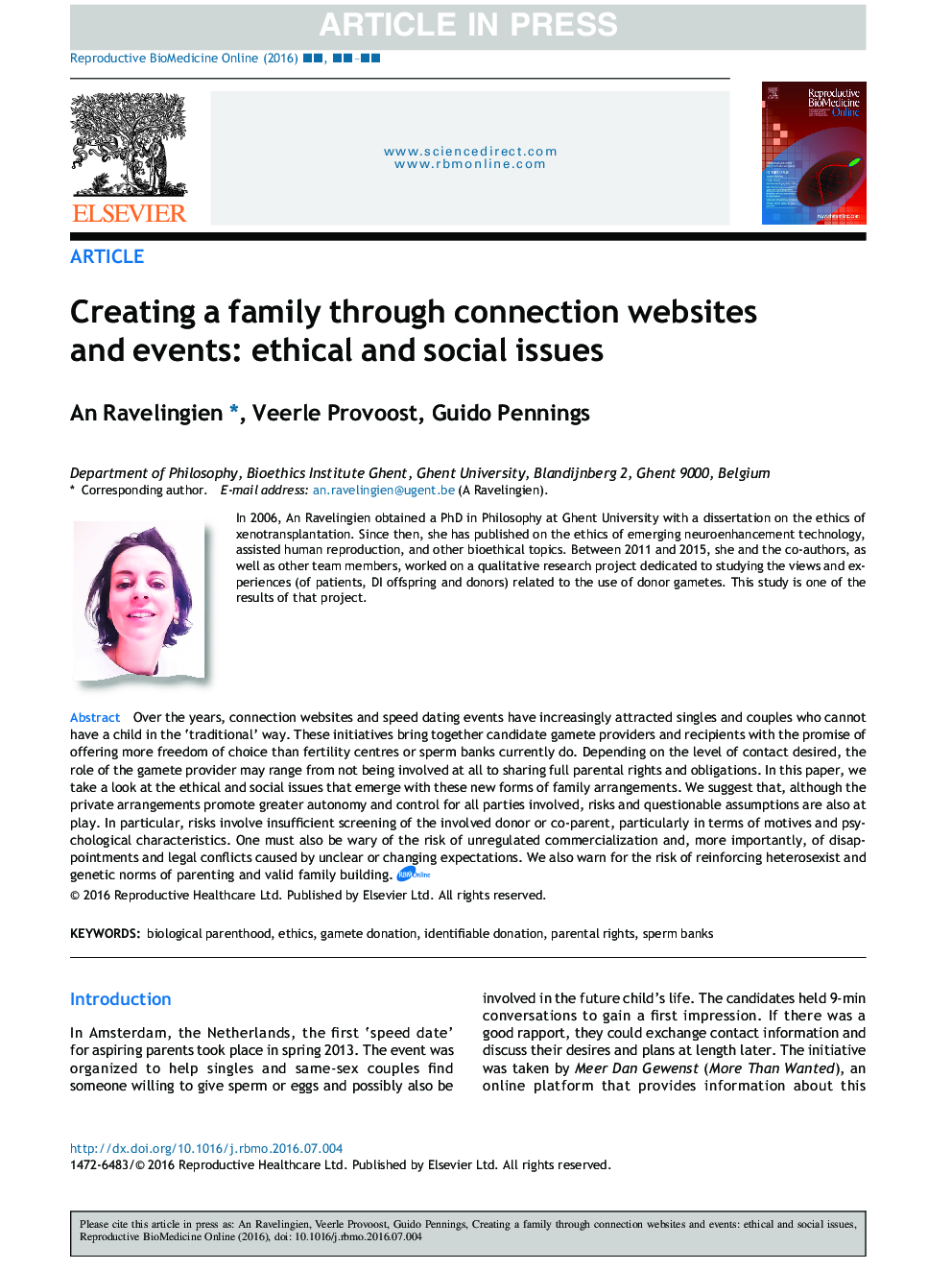| Article ID | Journal | Published Year | Pages | File Type |
|---|---|---|---|---|
| 5696751 | Reproductive BioMedicine Online | 2016 | 7 Pages |
Abstract
Over the years, connection websites and speed dating events have increasingly attracted singles and couples who cannot have a child in the 'traditional' way. These initiatives bring together candidate gamete providers and recipients with the promise of offering more freedom of choice than fertility centres or sperm banks currently do. Depending on the level of contact desired, the role of the gamete provider may range from not being involved at all to sharing full parental rights and obligations. In this paper, we take a look at the ethical and social issues that emerge with these new forms of family arrangements. We suggest that, although the private arrangements promote greater autonomy and control for all parties involved, risks and questionable assumptions are also at play. In particular, risks involve insufficient screening of the involved donor or co-parent, particularly in terms of motives and psychological characteristics. One must also be wary of the risk of unregulated commercialization and, more importantly, of disappointments and legal conflicts caused by unclear or changing expectations. We also warn for the risk of reinforcing heterosexist and genetic norms of parenting and valid family building.
Keywords
Related Topics
Health Sciences
Medicine and Dentistry
Obstetrics, Gynecology and Women's Health
Authors
An Ravelingien, Veerle Provoost, Guido Pennings,
